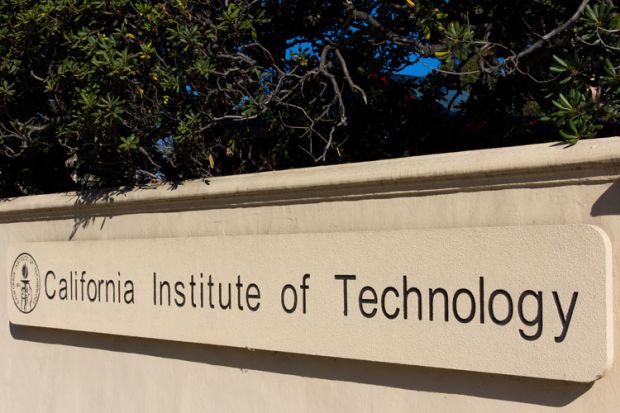Caltech: Caltech Joins SEA Change as Charter Member
Caltech is one of three institutions named as new charter members of SEA Change, an initiative of the American Association for the Advancement of Science (AAAS) that supports educational institutions as they systemically transform to improve diversity, equity, and inclusion (DEI) in science, technology, engineering, mathematics, and medicine (STEMM).
Caltech, along with Clemson University and the University of Iowa, joins a now 26-member group of institutions around the country that have publicly committed to the SEA Change guiding principles of equity and full participation of each individual across gender, race, ethnicity, disability status, socioeconomic status, sexual orientation, age, familial history of higher education, or any other aspect of identity that has been a source of bias in STEMM.
Caltech trustee Shirley Malcom serves as director of the SEA Change project at AAAS. (The SEA acronym represents STEM Equity Achievement.)
“Diversity, equity, and inclusion are essential to Caltech’s future,” said Caltech president Thomas F. Rosenbaum, the Sonja and William Davidow Presidential Chair and professor of physics. “Our hope is to be the destination of choice for the most creative, remarkable individuals in all fields, with a natural emphasis on science and technology. We recognize that unless we’re recruiting and supporting individuals from every perspective and background, we will not reach that goal.”
SEA Change adopts a transformative approach that begins with each participating institution conducting an intensive self-assessment. SEA Change prompts institutions to interrogate their own culture, policies, and procedures as they gather data, identify gaps, and home in on the concerns and barriers that stand in the way of access and success for students, faculty, and staff from groups marginalized in STEMM. Among the areas of focus that new charter members hope to investigate include faculty and staff hiring policies, curricula, and practices to retain undergraduates underrepresented in STEMM.
Each institution then creates its own individualized evidence-based plan to break down those barriers, and their common goals will lead to learning and collaboration among the charter members.
“We look forward to sharing our results with other institutions that have shared goals and aims,” Rosenbaum said. “We hope that we can both contribute to that dialogue and learn from it.”
There are three integral parts to the SEA Change initiative. The first is the SEA Change Community, which contains online spaces for SEA Change members to connect with one another. The second is the SEA Change Institute, which offers a library of resources, trainings, and events. Lastly, the SEA Change Awards honor institutions for progress made toward systemic transformation.
The focus of SEA Change is collaboration, not competition, said Lindsey Malcom-Piqueux (MS ’03), chief diversity officer and assistant vice president for diversity, equity, inclusion, and assessment at Caltech.
“We’re competing with ourselves to reach a specific benchmark, and that benchmark is equity,” she said, adding SEA Change’s evidence-based and data-driven approach aligns with Caltech’s identity.
The program, she said, can serve as a hub for existing DEI efforts at Caltech, foster better integration across departments, and create effective change across the entire Institute.
“Not only does it allow us to look at things at the institutional level, it maintains a nuanced approach of looking at things by discipline as well,” she said. “We get to look at things granularly but also through a more holistic lens.”

